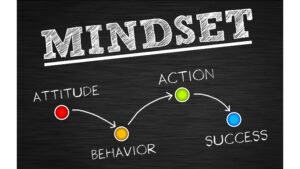In today’s fast-paced business environment, the pressure to succeed can often come at the expense of personal well-being. Entrepreneurs are particularly susceptible to burnout due to the demanding nature of starting and running a business. However, by integrating mindfulness practices into daily routines, entrepreneurs can achieve a sustainable balance between professional success and personal health.
Table of Contents
Introduction
Running a business is exhilarating, but it can also be overwhelming. Many entrepreneurs find themselves caught in a relentless cycle of stress and work, neglecting their mental and physical health. The key to breaking this cycle lies in mindfulness—a practice that enhances focus, reduces stress, and fosters a healthier work-life balance.
The Importance of Mindfulness in Entrepreneurship

Mindfulness is the practice of being fully present in the moment, acknowledging and accepting one’s feelings, thoughts, and bodily sensations. According to a study by the Harvard Business Review, mindfulness can improve decision-making skills, enhance emotional regulation, and increase resilience. For entrepreneurs, these benefits translate into better business performance and personal satisfaction. Entrepreneurs who adopt mindfulness witness tangible improvements in both their lives.
Practical Mindfulness Techniques for Entrepreneurs
- Mindful Morning Rituals: Begin your day with a mindful routine. Instead of diving straight into work emails, spend the first 30 minutes in silence or gentle activity. You can try yoga, a mindful walk, or simply sipping your coffee while focusing on your senses. This sets a calm and focused tone for the day.
- Focused Work Sessions with Pomodoro Technique: Use the Pomodoro Technique to enhance productivity. Work for 25 minutes with full focus on a single task, then take a 5-minute mindful break. During the break, practice deep breathing, stretch, or gaze out of a window and observe your surroundings.
- Mindful Emailing: Before sending an email, take a moment to read it over. Consider the tone, clarity, and intention behind your words. This not only reduces misunderstandings but also enhances your communication skills.
- Walking Meetings: Instead of traditional sit-down meetings, try walking meetings. Walking boosts creativity and reduces stress. Discuss business matters while strolling in a park or around your office building.
- Digital Detox Hours: Set specific hours where you completely disconnect from digital devices. Use this time for reflection, reading, or engaging in hobbies. This helps in reducing screen fatigue and improving mental clarity.
- Mindful Listening: Practice active listening in all your conversations. This means fully concentrating, understanding, responding, and then remembering what is being said. It fosters better relationships with your team, clients, and partners.
- Mindfulness Apps and Tools: Utilize technology to support your mindfulness practice. Apps like Insight Timer, Simple Habit, and Ten Percent Happier offer short guided meditations and mindfulness exercises specifically designed for busy schedules.

Expert Opinions on Mindfulness and Business Success
Renowned psychologist Dr. Ellen Langer, often referred to as the “mother of mindfulness,” asserts that mindfulness leads to greater creativity and innovation—critical components for entrepreneurial success. Additionally, Tony Schwartz, author of “The Power of Full Engagement,” emphasizes that managing energy, not time, is the key to high performance and personal renewal.
Real-Life Success Stories
- Arianna Huffington: The founder of The Huffington Post and Thrive Global is a vocal advocate for mindfulness. After collapsing from exhaustion in 2007, Huffington transformed her approach to work and well-being. She incorporated mindfulness and meditation into her daily routine, focusing on getting enough sleep and reducing stress. Her experiences led her to write “The Sleep Revolution” and she has since championed a more balanced and mindful approach to work and life.
- Marc Benioff: The CEO of Salesforce has made mindfulness a core part of his company’s culture. Inspired by his travels in India and meetings with mindfulness leaders, Benioff introduced meditation rooms and mindfulness programs at Salesforce. This initiative has significantly boosted employee well-being and productivity, demonstrating how mindfulness can be integrated into a corporate setting to foster a supportive and innovative work environment.
- Ray Dalio: The founder of Bridgewater Associates credits much of his success to his regular practice of Transcendental Meditation (TM). Dalio discovered TM early in his career and found that it enhanced his creativity, decision-making skills, and stress management. His commitment to mindfulness has not only contributed to his personal well-being but has also influenced the corporate culture at Bridgewater, where meditation is encouraged.
Conclusion and Call to Action
Balancing business success and personal well-being is not only possible but essential for long-term sustainability. By incorporating mindfulness practices into your daily routine, you can achieve a harmonious balance that fosters both professional success and personal fulfillment. Start with small changes today—try a short meditation session or a gratitude journal entry—and notice the difference it makes.
Join the conversation! Share your mindfulness tips and experiences in the comments below, and let’s build a community of mindful entrepreneurs together. For more insights, check out our other posts on wellness and productivity at Little Life Goals.




